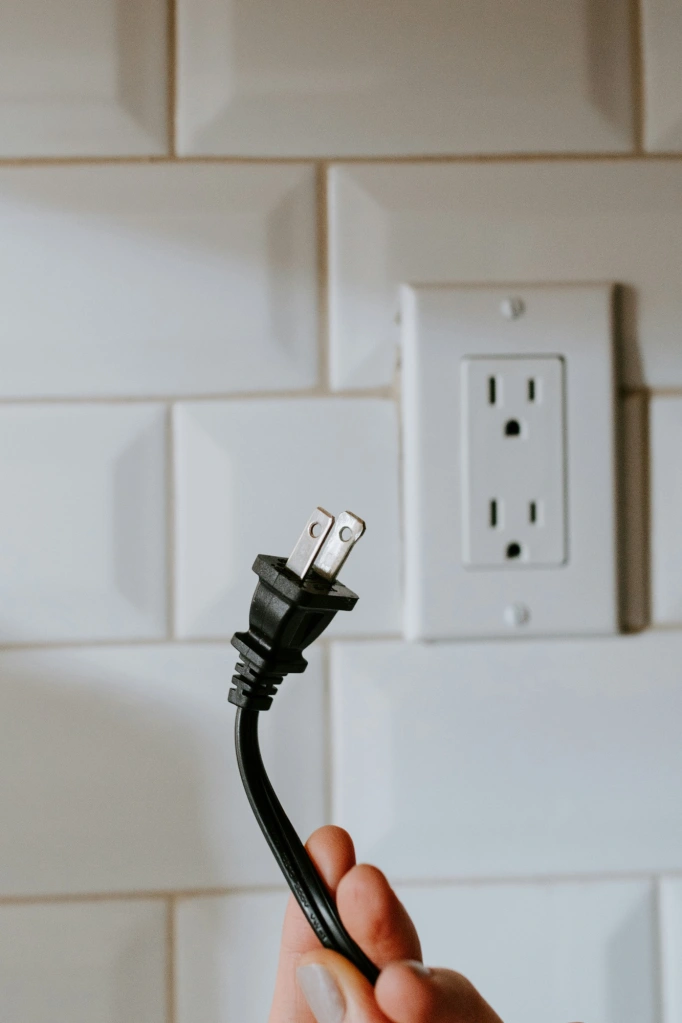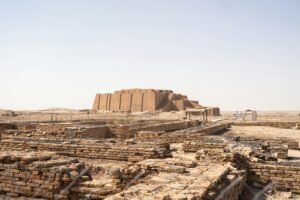The Israelite Slave Girl: Unexpected Divine Connectors.
Sometimes in our lives we experience things that are hard to bear, unfair situations we have absolutely no control over that place us at the mercy of others and their desires. Some other times we experience things that amaze us, and leave us wondering what just happened and how possible it was that it would happen to us. Each and every day we meet people in our orbits, whether family or friends, coworkers or strangers. And all these people interact with our realities in some way, shape or form that we might not be consciously aware of. They may make us happy or sad, calm or upset, by their actions, words or just their mere presence. Or they may even do things in our absence that we have no idea about. Sometimes our presence might not be relevant to the sort of impact people have on our lives, whether positive or negative. Meeting or sometimes not meeting one person, has often times made a significant difference in the lives of people everywhere.
Imagine being in desperate need of something, and you reach out to someone who you know can offer you access to that exact thing you’re looking for, your relief and gratitude would know no bounds, right? If that person is a friend, or a family member, you would not really consider how serendipitous it is for them to have access to the exact same thing you require. But now consider an alternative scenario; Again, you are in desperate need of help, but nobody you know can help you with your problems. You’ve used your all connections, contacts, and resources to no avail. You might have even gotten discouraged and given up on ever finding a solution to your problem, after all if nobody you know can help you, what are you supposed to do? But then, out of the blue, a perfect stranger, someone you ordinarily would have no reason to have met or even be in contact with, someone who doesn’t know the origin of your problem, provides you with an answer. Miraculous, that’s what you would call it right?
Nowadays with the advent of the internet and social media, it has become increasingly easier to connect wants and needs to individuals and platforms that can satisfy them. Easier to network and communicate with people, and have access to individuals and information that can transform your everyday experience. We call these entities “plugs”, using the electrical demonstration to explain the connection between the desire and its fulfillment. You want a new bag? Easy. There’s dozens of plugs on Instagram. Looking for someone to employ? LinkedIn has your back. Want to move heavy, bulky materials? Dispatch services to the rescue. Somebody somewhere always has an answer to the question, and thanks to the internet, all you need to do is ask. But it wasn’t always so simple to find a solution, or get in contact with someone who could connect you to one. Plugs, more importantly sure plugs, even now, aren’t always easy to find. Today we’ll be talking a quick look at one of the surest plugs in the Bible, an unexpected one that changed the course of a man’s life forever.
There was once a man named Naaman (2 Kings 5:1), and before you ask, no, he’s not the focus of this conversation, more like the beneficiary. So Naaman was a soldier, not just any soldier, but the commander of the entire army of Syria, so you know he wasn’t a small fish. He had won many victories, and was described as a mighty man of valor, and he had even led successful raids against Israel. Again, it sounds like this man was doing pretty well for himself. The only issue was, well, he was a leper. As in, he had leprosy (2 Kings 5:1).
Now for those of us who might not be familiar with Leprosy, it is actually a serious disease caused by a bacterium that can be spread through airborne droplets. In those days it was more common than it is today, owing to medical advances and better treatments and sanitation. But then, in those times, there were nothing like antibiotics or other medical treatments, and Leprosy was believed to be inflicted as punishment for sins. So if you were a leper, you’d be seen as unclean (Lev. 13: 1-59), and be cast out of your own community for fear that you’d spread the disease. Lepers had to live separately, and weren’t allowed to come in close contact with other people (Lev. 13: 46). They were feared, reviled even, by others and could only ever return to their homes if the disease was completely eliminated. They were easily recognized by the pale or white lesions on their skin, usually concentrated on their hands, but they weren’t even allowed to be close enough to be identified by that. They always, always, had to maintain their distance from other people.
Now imagine this important man, Naaman, with all his success as a commander, and all his accomplishments in his service, having to endure such pain and suffering in his body, in addition to the disgrace of being separated from the other men and even his family, because of his condition. Sounds not so great anymore, right? Well in the course of his raids as commander, Naaman and his fellow Syrian soldiers had captured a certain slave, a girl who had somehow wound up working for, guess who? Oga’s madam AKA Naaman’s wife (2 Kings 5:2).
Now mind you, this girl wasn’t the house keeper of today who probably answered an ad in the paper or interviewed for the position, nothing like that. She was a slave, had been captured and taken away from her home and her people by enemy forces, and now she was being forced to serve those enemies of her people. One would think she would be more than justified to be bitter, and harbor anger, resentment and even contempt in her heart for these people who had put her in this position. And one would not be surprised at all if she even hated them, and would have been pleased to find that her master suffered from Leprosy. But guess what? She not only did not did not hate her captor, she actually worried about him and wanted him to be better! Crazy right? And how do I know, you might ask, and you would be right to. I know because she offered her mistress a solution (2 Kings 5:3).
She could have known and said nothing, after all it was because of these people she was where she was, away from all she had ever known, and a slave. She might have never even considered it if her heart was full of bitterness and other negative feelings, because she would have never wanted to do anything positive for them, much less help her master become healed. Instead, she went to her mistress, and told her about the prophet in Samaria who could cure her master of his ailment. And of course, the wife told her husband. The fact that she even volunteered the information, rather than glorying in his suffering shows us just how kind this girl was in her heart.
Well, Naaman listened to the information that his wife gave him, information she had gotten from this slave girl of hers, and he went to Israel with a note from his king to the king of Israel (2 Kings 4-6). A note which asked the king of Israel to cure Naaman. I can imagine the utter confusion that must have descended on the king of Israel when he read that letter. Cure Naaman as how? With what? As who exactly? He even tore his clothes, thinking it was a setup, to cause trouble between them, because he was asking, “Am I God…?” (2 Kings 5:7). Luckily, Elisha the prophet stepped in and sent for Naaman, instructing him to go and wash himself in the river Jordan seven times(2 Kings 5:8-10), although the coconut head almost did not go because he was vexing that Elisha did not come and see him and do something spectacular to make him well. Thankfully he went, dipped and was cleansed (2 Kings 5:11-14).
Most times when we read this story in the Bible, we skim over her actions and head straight to the prophet Elisha’s instruction (2 Kings 5: 10), or the miracle of Naaman’s cleansing (2 Kings 5:14), or even to Gehazi’s greed in collecting gifts he didn’t deserve, and his subsequent punishment (2 Kings 5:20-27). But we forget something very important, very small but so utterly vital. Without this slave girl, without her generosity of heart and kindness, none of the things which happened after would have happened. Naaman would not have gone to Israel. Elisha would not have sent to the king of Israel for him. The cleansing would not have happened. She was the key, she was the connection, the reason Naaman left Syria to seek a solution in Israel. She was the plug.
Reading through this chapter of the book of 2nd Kings, it was not the obvious miracle of the cleansing that hit me, nor was it Naaman’s initial pride and anger (although tbh I wanted to knock his head), and as for Gehazi, that one is another story entirely. But the simplicity of this slave girl’s kindness weakens the spirit. It was such a simple, but powerful thing to do. For someone who was in captivity to offer kindness, even in the midst of her own trials. To connect the one who had captured her to his miracle is no small feat.
How many of us can boldly say we would do the same? That we would be kind enough to help someone who might have been responsible for doing us harm in whatever way? 1 Corinthians 13:4 highlights the second quality of Love as being Kind. If God is Love, the eternal, merciful Love that never fails or falters, and we are made in His image, bearing His righteousness, then shouldn’t we also have His qualities? Shouldn’t we be kind? Regardless of, despite, in spite of, nonetheless, even though, upon still. The first part of 1 Corinthians 14 instructs us “to make love our aim”. If I’m being honest, there’s no way I can see this slave girl being this amazing, divine plug without having love in her heart. Love for her mistress, love for her master. Regardless of, despite, in spite of, nonetheless, even though, upon still. As an Israelite, it is a forgone conclusion that she knew Yahweh, knew His instructions and His commands. As His children, it should be a forgone conclusion that we not only know Him, but are being renewed and transformed in Him. It was God’s kindness that caused Him to save us, even at the cost of His own death. It was His Kindness that saved us, that still saves us every blessed day we remain on this earth. It is His kindness that places us in certain places and situations to either be connected to our own destinies or to connect others to theirs. It is God’s kindness that connects us to Him in salvation, and helps us to live life in Him.
While we may be content to believe that of course we will meet such people, these divine connectors, it would be very foolish to believe that that’s all there will be to it. You, yourself, are a connector, YOU are someone’s sure plug to something, to someone, or even more importantly, to Adonai Himself.
To be an image of something or someone means to identically replicate the original. And so I ask you, soldier, the one waiting to hear to hear the voice of the ultimate Commander. I ask you, fine boys and girls wey love Jesus, do you look like your Father??
Greetings from the Foot of the Cross,
Gabrielle…







